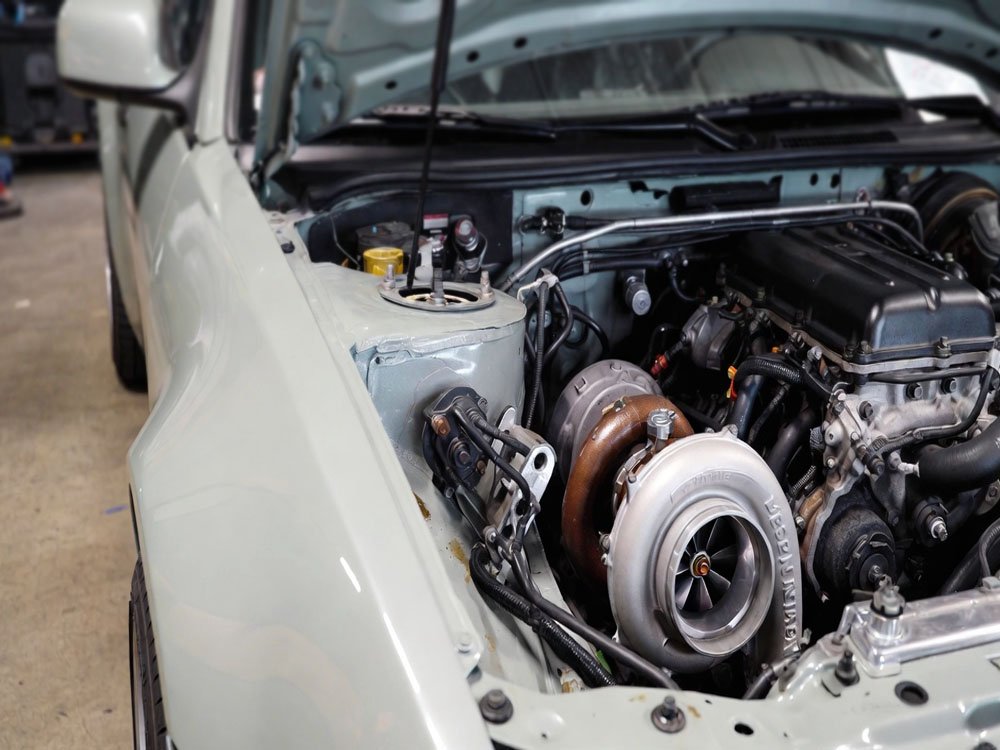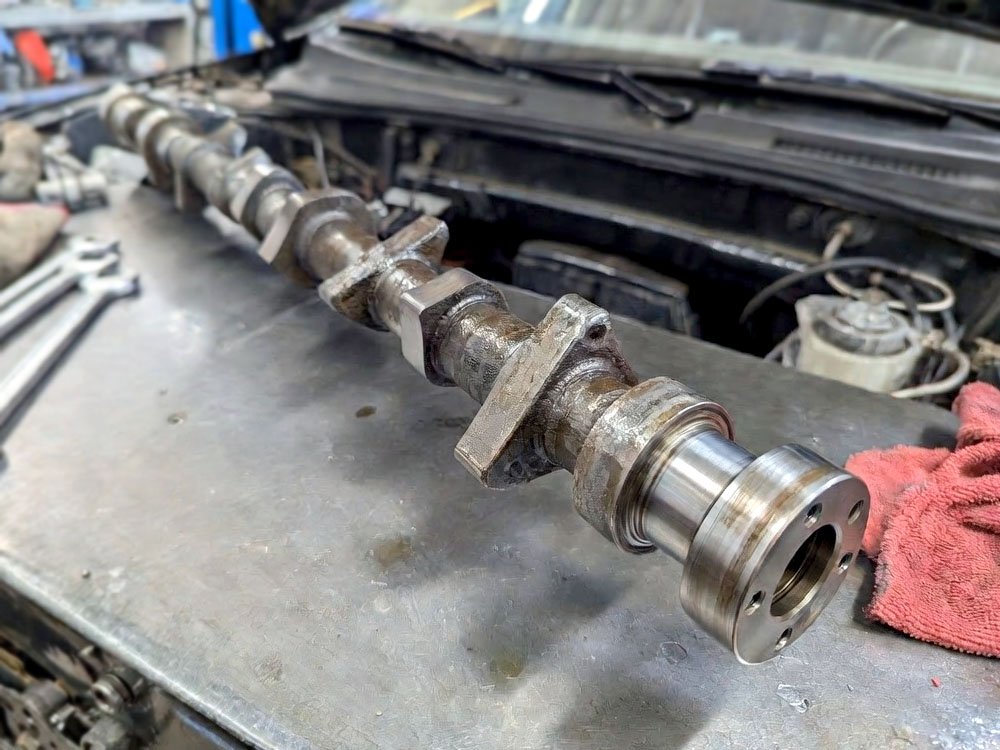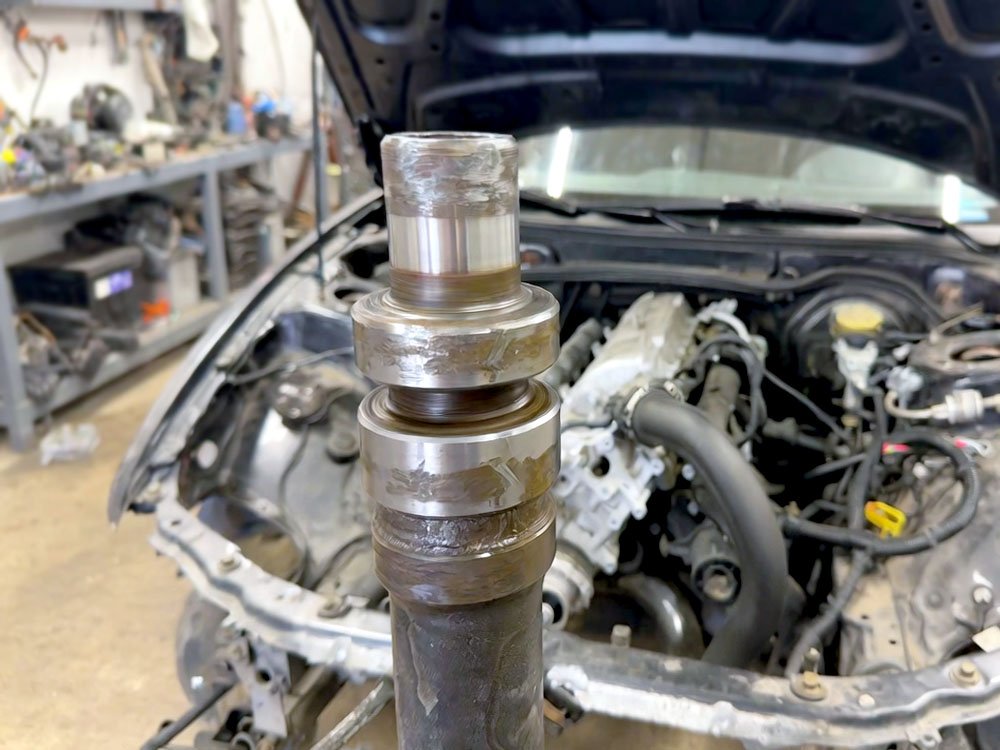You might be thinking about renting an intermediate SUV for your next trip. But before you do, there are a few things you should know. An intermediate SUV is a great choice if you need more space than a regular car but don’t want something too big. It’s perfect for road trips, family vacations, or just getting around comfortably.
In this article, we’ll cover what to check before you rent. From understanding the size and features to knowing how much it will cost, we’ll help you make the best choice for your needs. Let’s dive in and get you ready for a smooth and enjoyable rental experience!
Understanding the Intermediate SUV Category
When you hear “intermediate SUV,” it means a type of vehicle that’s bigger than a compact SUV but smaller than a full-size SUV. These SUVs are great if you want more space than a small car but don’t need the extra size of a larger SUV.
Intermediate SUVs usually have room for five people and offer a decent amount of cargo space for your stuff. They are a good choice for families or people who like to take trips. They give you more room without being too big to handle easily.
These SUVs are also known for being a bit more fuel-efficient than larger models, which can save you money on gas. They often come with good safety features and technology, like backup cameras and Bluetooth, to make driving more comfortable and safe.
Choosing an intermediate SUV can be a smart move if you need extra space and want something that’s easy to drive and park. It’s a nice middle ground if you find compact SUVs too small and full-size SUVs too big.
Key Features to Look for in an Intermediate SUV
When choosing an intermediate SUV, there are several key features to consider to ensure you find the right fit for your needs. Here are some important ones to look for:
1. Comfort and Space
When you are looking at an SUV, the first thing to check is how comfortable it is. You want to make sure that there is enough room inside the car for everyone. This means checking the space for the driver and passengers. Look for a lot of legroom and headroom so that you and your family can sit comfortably.
Also, see if the seats can be adjusted easily. Some SUVs have seats that move forward, backward, or can be tilted, which can be very helpful. Don’t forget about the cargo space. You should have enough room in the back for your groceries, luggage, or any other items you need to carry. It’s a good idea to sit in the car and test how it feels to make sure it will be comfortable for long drives.
2. Safety Features
Safety is very important when choosing an SUV. Look for vehicles that have modern safety features. These include things like adaptive cruise control, which helps you keep a safe distance from the car in front of you. Lane-keeping assist is another feature that helps keep the SUV in its lane on the road.
Automatic emergency braking is important because it can stop the car if you are about to hit something. Check if the SUV has multiple airbags, as they provide extra protection during an accident. Also, look at the crash-test ratings for the SUV. These ratings tell you how well the vehicle performs in safety tests and can help you make a safer choice.
3. Performance and Handling
How the SUV drives is another important factor. You should check what kind of engine it has. A powerful engine will make the SUV move quickly and handle well. Some SUVs have a V6 engine or a turbocharged engine, which provides more power.
If you live in an area with a lot of rain or snow, you might want an SUV with all-wheel drive (AWD). AWD helps the SUV grip the road better in slippery conditions. It’s a good idea to take the SUV for a test drive to see how it handles on the road and how it performs when you accelerate or turn.
4. Technology and Entertainment
Modern SUVs come with a lot of technology that can make driving more enjoyable. Look for an SUV with a good infotainment system. This is the system that controls things like music and navigation. A touchscreen display is useful because it makes it easy to use these features.
Check if the SUV has smartphone integration, like Apple CarPlay or Android Auto, which lets you connect your phone to the car. Bluetooth is also important because it allows you to make phone calls and play music wirelessly. Some SUVs also have built-in navigation systems, which can help you find your way easily. High-quality audio systems will make listening to music or podcasts more enjoyable.
5. Fuel Efficiency
How much fuel the SUV uses is an important consideration. Look at the SUV’s miles per gallon (MPG) ratings for both city and highway driving. The MPG rating tells you how far the SUV can go on a gallon of gas.
A higher MPG rating means the SUV will use less fuel, which saves you money. If you do a lot of driving, choosing an SUV with good fuel efficiency can make a big difference in how much you spend on gas.
6. Cargo and Towing Capacity
Think about how much cargo space you need. The SUV should have enough room in the back for all the things you regularly carry. If you often transport large items, check the cargo space carefully.
Some SUVs also have a towing capacity, which means how much weight they can pull behind them. If you plan to tow things like a trailer or boat, make sure the SUV can handle the weight. Look at the towing specifications to see if it meets your needs.
7. Interior Features
Interior features can make your drive more pleasant. Look for SUVs with climate control options, like dual-zone automatic climate control. This feature lets you set different temperatures for the driver and passengers, making everyone more comfortable.
Check the seat materials too. Some SUVs have cloth seats, while others have leather seats. Leather seats might be easier to clean and feel more luxurious. Also, see if the seats are heated or ventilated, which can be very nice in extreme weather conditions.
8. Build Quality and Reliability
Finally, consider the build quality and reliability of the SUV. Look up reviews and ratings for the brand to see how dependable it is. Some brands have a better reputation for reliability than others.
Also, check the warranty that comes with the SUV. A good warranty will cover repairs and give you peace of mind. It’s important to choose an SUV from a brand known for making reliable vehicles that won’t need frequent repairs.
By paying attention to these details, you can choose an intermediate SUV that fits your needs and ensures a comfortable and enjoyable driving experience.
Rental Tips and Considerations
When renting a car, here are some helpful tips and considerations to ensure a smooth experience:
1. Book in Advance
When you need to rent a car, it’s a good idea to book it ahead of time. This means you should make your reservation before the day you need the car. Booking early helps you get a better price and ensures that the type of car you want will be available. If you wait until the last minute, you might find that the car you want is already taken or that the prices are higher. By planning ahead, you can save money and have more choices.
2. Compare Prices
To find the best deal on a rental car, it’s smart to look at prices from different rental companies. You can do this by using websites that compare prices. These sites show you options from many companies at once, so you can easily see which one is the cheapest or has the best value. Don’t forget to check what’s included in the price, such as insurance and mileage limits, to make sure you’re getting a good deal.
3. Understand the Rental Terms
Before you sign the rental agreement, make sure you read it carefully. This document will explain the rules and conditions of your rental. For example, it will tell you how many miles you can drive without extra charges, what the fuel policy is (like whether you need to return the car with a full tank), and any fees for things like late returns or extra drivers. Knowing these details helps you avoid surprises and extra costs.
4. Check for Insurance Coverage
Rental cars usually come with some insurance coverage, but it’s important to know exactly what is included. Check if the rental company provides basic insurance, which helps pay for damage or accidents. Also, see if your own car insurance or credit card offers additional coverage for rental cars. This way, you can be sure you’re protected and avoid paying for unnecessary coverage.
5. Inspect the Vehicle
When you pick up the rental car, take some time to look it over carefully. Check for any scratches, dents, or other damage. If you find any, make sure to tell the rental company right away and ask them to note it in your rental agreement. This helps protect you from being charged for damage that wasn’t your fault when you return the car.
6. Know the Fuel Policy
Understand how the rental company wants you to handle the fuel. Some companies require you to return the car with a full tank, while others might charge you for fuel if you don’t fill it up. Make sure you know what the policy is before you pick up the car. If you have to return it with a full tank, plan to stop for gas before you return the car to avoid extra charges.
7. Consider Additional Features
Think about whether you need any extra items or features when you rent your car. For example, if you’re traveling with children, you might need to add a child seat. Or, if you’re going to a new place, you might want a GPS to help you find your way. These extras usually cost more, so decide what you need ahead of time and ask about the prices.
8. Check for Local Driving Laws
If you’re renting a car in a different country or even a different state, it’s important to know the local driving laws. Different places have different rules about things like speed limits, road signs, and driving on the other side of the road. Learning these rules before you start driving can help you stay safe and avoid getting into trouble.
9. Return the Car on Time
Make sure to return the rental car at the time you agreed upon. If you are late, you might have to pay extra fees. If you think you need the car for longer, let the rental company know as soon as possible. They can help you extend the rental period, but it’s better to do this early to avoid any issues.
10. Review the Final Bill
After you return the car, check the final bill to make sure everything is correct. Look for any extra charges that you didn’t expect. If you see something you don’t understand or didn’t agree to, ask the rental company about it. It’s important to make sure that you only pay for what you actually used and agreed to.
Practical Uses and Benefits
Here are some practical uses and benefits of renting a car:
1. Travel Flexibility
Renting a car gives you the freedom to explore your destination on your own schedule. You can visit places that may not be accessible by public transport and travel at your own pace. Whether you’re going on a road trip or just need a car for a few days, renting allows you to move around easily.
2. Cost-Effective for Short-Term Needs
If you only need a car for a short period, like a weekend getaway or a business trip, renting is often more cost-effective than owning a car. You avoid expenses like insurance, maintenance, and depreciation that come with car ownership.
3. Access to Different Types of Vehicles
Rental companies offer a variety of vehicles, from compact cars to SUVs and luxury models. This means you can choose a car that best suits your needs for a specific trip. For example, you might rent an SUV for a family vacation or a luxury car for a special occasion.
4. Avoiding Wear and Tear on Your Own Car
Renting a car can help you avoid putting extra miles and wear on your own vehicle. If you’re planning a long road trip or need a car for heavy-duty use, renting a vehicle can keep your personal car in better condition.
5. Testing Out Different Vehicles
If you’re considering buying a new car, renting a similar model can give you a feel for how it drives. This can be a helpful way to test out different features and performance before making a purchase decision.
6. Convenience for Special Occasions
Renting a car can be useful for special events, like weddings or corporate functions. You can choose a stylish or high-end vehicle that matches the occasion, adding a touch of luxury or sophistication to your event.
7. Accessibility During Travel
When you travel to a new city or country, renting a car can make your visit more convenient. It can help you get from the airport to your hotel and explore the area without relying on public transport or taxis.
8. Insurance Coverage for Rentals
Rental cars often come with insurance coverage, which can provide peace of mind while driving. You can also check if your personal insurance or credit card offers additional coverage, which can save you from unexpected expenses in case of accidents or damage.
9. No Long-Term Commitment
Renting a car means you’re not tied to a long-term commitment. If your needs change, you can easily return the car and rent another one that better suits your situation. This flexibility can be especially useful if you have varying transportation needs.
10. Easy Upgrades and Additional Features
Rental companies often offer upgrades and additional features, such as GPS systems, child seats, or additional drivers. This means you can customize your rental experience to better suit your needs and preferences.
I hope this guide helps you feel ready to rent an intermediate SUV. Remember, check the SUV’s size and features to match your needs. Look at the rental company’s rules and costs. Checking reviews can also help. Enjoy your drive and be safe on the road!


